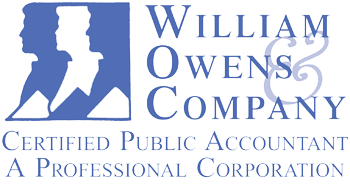
In the process of taking stock of your business at the start of 2020, did you decide to look at your insurance policies? Before you review those thick stacks of paper, you should learn about the major types of insurance policies. Each protects a different aspect of your business, so you may not need every single option out there. But if your business has been going through change, it might be time to review your existing policies.
Here are seven of the most common types of insurance policies that every small business owner might need.
General Liability Insurance
General liability insurance covers small business owners from claims related to bodily injury, property damage, and personal injury. It protects you from liability claims where you are found liable for causing harm.
Third-party bodily injury covers a possible lawsuit and medical bills if someone hurts themselves on your property. Third-party property damage kicks in if one of your employees damaged someone else’s property, like if your forklift driver backs into inventory owned by another business. If another business thinks that your advertising looks too much like theirs, they can sue you for damages. General liability insurance also covers that.
And, lastly, there’s reputational harm. If you, or an employee, badmouth a competitor or their products, they could sue you for libel or slander. General liability insurance protects you from unexpected accidents or lawsuits.
Property Insurance
Property insurance is the professional equivalent of homeowners insurance. It protects the physical aspects of your business from a covered loss. Covered losses could include:
- Fire
- Theft
- Customer injuries
- Income loss
If your building is damaged or destroyed in a fire, business property insurance will help cover the costs of rebuilding or repairing. It would also provide some assistance with income loss while you couldn’t operate.
Theft coverage would replace computers, inventory, or other items if someone broke into your commercial space and stole them. Customer injury protection helps cover the expenses of a lawsuit if a customer is injured on your property and sues you.
A robust business property insurance policy protects the following:
- Inventory
- Tools and equipment
- Personal property
- Furniture
- Outdoor landscaping
- Computers
- Important documents
As your business grows, your previous coverage limits may not provide adequate protection. If you’ve invested in or significantly expanded inventory, replacement limits on your policy could now be too low. Maybe you had to expand into adjoining warehouse space to accommodate the new inventory – did you call your insurance agent and add that square footage to your policy?
Small business owners whose businesses have been going through a period of change would be wise to review the adequacy of their business property insurance.
Business Owner’s Policy
A business owner’s insurance policy covers small and medium-sized businesses. It bundles general liability insurance and property insurance into one policy, which typically lowers the premium and saves the business owner money.
A BOP policy covers you from lawsuit risks related to third-party bodily injuries, third-party property damage, product liability issues, and advertising injuries. If damage occurs to your building or property under a covered incident, typically fire, theft, vandalism, or some weather-related events, you will receive financial remuneration.
Not all business owners need property insurance, for example, if you provide services rather than sell products or don’t have a physical office or warehouse. But if you do, combining property insurance and general liability insurance into one business owner’s policy will likely reduce your monthly premiums.
Workers’ Compensation
Most states mandate that employers purchase workers compensation policies. This policy replaces lost wages and provides medical benefits to employees who’re injured on the job. In exchange, the employee relinquishes their right to sue you for negligence.
State laws vary in the amount of coverage they mandate you carry, as well as exemptions. Often, you’re not required to cover domestic workers, farm laborers, or casual employees.
Professional Liability
If you provide services to clients, you need professional liability insurance. Common professions that need protection include accountants, physicians, and lawyers. It protects those who give their clients advice from negligence claims and lawsuits.
Professional liability, sometimes called errors and omissions, insurance, pays some of the costs of defending yourself against a lawsuit and covers any damages awarded. If you provide services and advice, you might want to add this coverage to your general liability insurance.
D&O
Businesses structured as sole proprietorships don’t need D&O insurance, but larger corporate entities do. Directors and officers liability insurance covers those in higher-level positions from lawsuits that could go after their personal assets.
Employees, vendors, customers, investors, competitors, a number of people could file a lawsuit against a director or officer of your company for something related to their role. Common lawsuits allege:
- Misuse of company funds
- Misrepresentation of company assets
- Fraud
- Noncompliance with workplace laws
- Theft of IP or a competitor’s customers
- Breach of fiduciary duty
These policies help pay legal fees, settlements, and other costs related to the lawsuit. If you have recently changed your corporate structure or added new directors or officers, take time to update this policy.
Data Breach
Businesses that collect confidential customer information should carry a data breach policy. These policies protect you in the case of intentional or unintentional release of private and confidential information. The policy will cover any fines, penalties, or legal costs resulting from the data breach.
If you store customer credit card data, social security numbers, or medical records, you will need data breach insurance. It can often be added to either a business owner’s policy or a general liability policy.
Acting quickly is the key to minimizing reputational risk and the risk of being sued. Data breach policies also pay for public relations and other associated costs if a breach occurs.
Business Owned Life Insurance
Would your business keep functioning if something happened to your CFO? Business owned life insurance protects the business in the event a key shareholder or employee passes away. They would help you stay afloat by covering the costs of an executive search, paying for any loss-of-business costs. If you decided to shut down after the death, the insurance benefit can be used to pay debts or severance.
These policies can also serve as investment vehicles, with cash value insurance included in an executive compensation plan as a retirement supplement. In addition to providing life insurance protection, businesses can use them to fund a buy-sell agreement or cover a loan.
Small Businesses and Insurance
The right insurance policy protects your business and ensures that you don’t lose what you worked so hard to build. It covers you from the unexpected and, while you hope to never need it, it could be a lifesaver if anything goes wrong.
